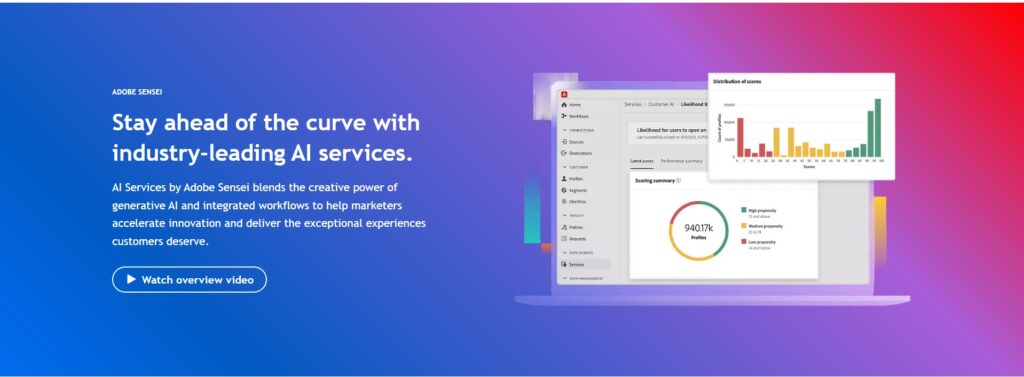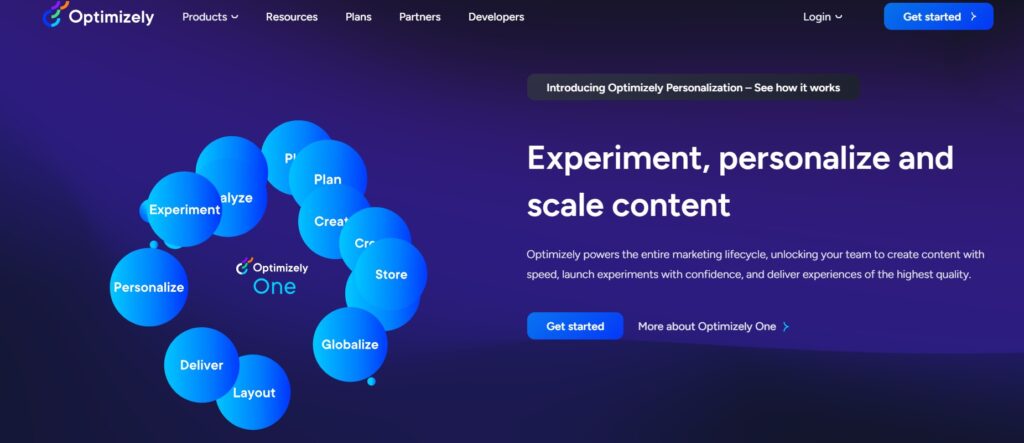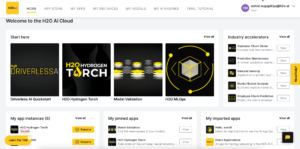AI ecommerce tools
Follow the trend, explore the best ai ecommerce tools to grow your ecommerce business.
Staying ahead of the competition is essential for success. With the advent of artificial intelligence, online businesses now have access to a suite of powerful tools designed to streamline operations, enhance customer experiences, and drive sales.
From personalised product recommendations to advanced analytics, AI eCommerce tools can transform how businesses interact with customers and manage their online presence.
In this blog post, I’ll explore some of the best AI eCommerce tools available today, highlighting their key features and practical use cases to help you make informed decisions about integrating them into your business strategy.
Here’s an overview of some of the best AI eCommerce tools that can help grow your online business.
1. Shopify
Shopify is one of the most popular eCommerce platforms that utilises AI to help merchants create and manage their online stores efficiently.
Features:
- AI-powered product recommendations.
- Automated inventory management.
- Built-in SEO tools to enhance visibility.
- Analytics dashboard for tracking sales and customer behaviour.
Use Cases:
- Small Businesses: Easy setup for online shops without technical knowledge.
- Retailers: Manage multiple sales channels seamlessly.
- Entrepreneurs: Leverage powerful marketing tools to drive traffic.
Website: Shopify
2. BigCommerce
BigCommerce is a flexible eCommerce platform that harnesses AI to offer robust solutions for scaling businesses.
Features:
- Advanced SEO features to improve organic traffic.
- AI-driven analytics and reporting.
- Integration with multiple payment gateways.
- Customisable themes and templates.
Use Cases:
- B2B Companies: Ideal for businesses that require extensive customisation.
- Growing Brands: Scale operations with enterprise-level solutions.
- Retailers: Manage high-volume sales efficiently.
Website: BigCommerce
3. Nosto
Nosto is an AI-powered personalisation platform designed to enhance the shopping experience by providing tailored recommendations.
Features:
- Dynamic product recommendations based on user behaviour.
- Automated email marketing tailored to customer preferences.
- On-site personalisation tools for better engagement.
- Analytics to track personalisation performance.
Use Cases:
- ECommerce Stores: Increase conversion rates through targeted suggestions.
- Marketers: Create personalised email campaigns.
- Retailers: Enhance user experience on product pages.
Website: Nosto
4. Clerk.io
Clerk.io leverages AI to help online retailers boost sales through effective personalisation and search solutions.
Features:
- Intelligent product search that learns from user behaviour.
- Personalised recommendations across all channels.
- Automated customer segmentation for targeted marketing.
- Real-time analytics and insights.
Use Cases:
- Online Retailers: Improve search functionality to enhance user experience.
- Marketers: Target specific customer groups with tailored promotions.
- ECommerce Platforms: Increase average order value through upselling.
Website: Clerk.io
5. Klaviyo
Klaviyo is an email marketing platform that utilises AI to help eCommerce businesses optimise their marketing strategies.
Features:
- AI-driven segmentation for targeted email campaigns.
- Automated workflows based on customer behaviour.
- Detailed analytics to track email performance.
- Integration with various eCommerce platforms.
Use Cases:
- ECommerce Businesses: Automate email marketing efforts.
- Marketers: Develop effective, data-driven campaigns.
- Retailers: Re-engage customers through personalised email strategies.
Website: Klaviyo
6. WooCommerce
WooCommerce is a widely-used WordPress plugin that allows businesses to create an eCommerce store with ease and utilise AI features for optimisation.
Features:
- Extensive library of plugins for customisation.
- Built-in AI tools for analytics and reporting.
- Easy integration with various payment gateways.
- SEO-friendly setup for better visibility.
Use Cases:
- Small to Medium Businesses: Cost-effective solution for eCommerce.
- Bloggers: Monetise content with an online shop.
- Freelancers: Create custom stores for clients.
Website: WooCommerce
7. Adobe Sensei
Adobe Sensei is Adobe’s AI and machine learning platform that enhances eCommerce solutions by providing insights and automation.
Features:
- AI-driven data analysis for actionable insights.
- Automated content generation for marketing materials.
- Personalisation features for enhancing customer engagement.
- Integration with Adobe Experience Cloud.
Use Cases:
- Digital Marketers: Streamline content creation and marketing efforts.
- ECommerce Managers: Use data to drive decision-making.
- Brand Managers: Enhance customer experience through tailored content.
Website: Adobe Sensei
8. ChatGPT by OpenAI
ChatGPT can be integrated into eCommerce websites to enhance customer support and engagement through AI-powered chatbots.
Features:
- Natural language processing for human-like interactions.
- 24/7 customer support capabilities.
- Automated FAQs and order tracking.
- Customisable responses based on user queries.
Use Cases:
- ECommerce Websites: Improve customer service efficiency.
- Retailers: Provide instant support to customers.
- Marketers: Engage visitors with personalised conversations.
Website: OpenAI
9. Optimizely
Optimizely is an experimentation platform that leverages AI to help eCommerce businesses optimise their online presence and user experience.
Features:
- A/B testing for website elements and content.
- AI-driven recommendations for personalisation.
- Real-time data analytics and insights.
- Seamless integration with eCommerce platforms.
Use Cases:
- Marketers: Test different strategies to increase conversions.
- ECommerce Managers: Optimise user experience based on data.
- Brands: Make data-driven decisions for product launches.
Website: Optimizely
10. SEMrush
SEMrush is an all-in-one marketing toolkit that uses AI to help eCommerce businesses enhance their online visibility and marketing strategies.
Features:
- Keyword research and SEO analysis.
- Competitor analysis to identify market gaps.
- Site audit tools for optimisation.
- Content marketing and social media tools.
Use Cases:
- Digital Marketers: Improve SEO strategies for higher rankings.
- ECommerce Businesses: Analyse competitors and adjust tactics.
- Content Creators: Develop SEO-friendly content.
Website: SEMrush
Conclusion
As the eCommerce landscape continues to evolve, leveraging AI tools is no longer just an option—it’s a necessity for businesses aiming to thrive.
The tools discussed in this post provide various functionalities, from personalising the shopping experience to optimising marketing efforts and improving customer service.
By incorporating these AI-driven solutions, you can enhance your operational efficiency, better understand your customers, and ultimately boost your sales. As you consider which tools to implement, think about your specific business needs and goals. T
he right combination of AI eCommerce tools can pave the way for sustained growth and success in your online business.


























